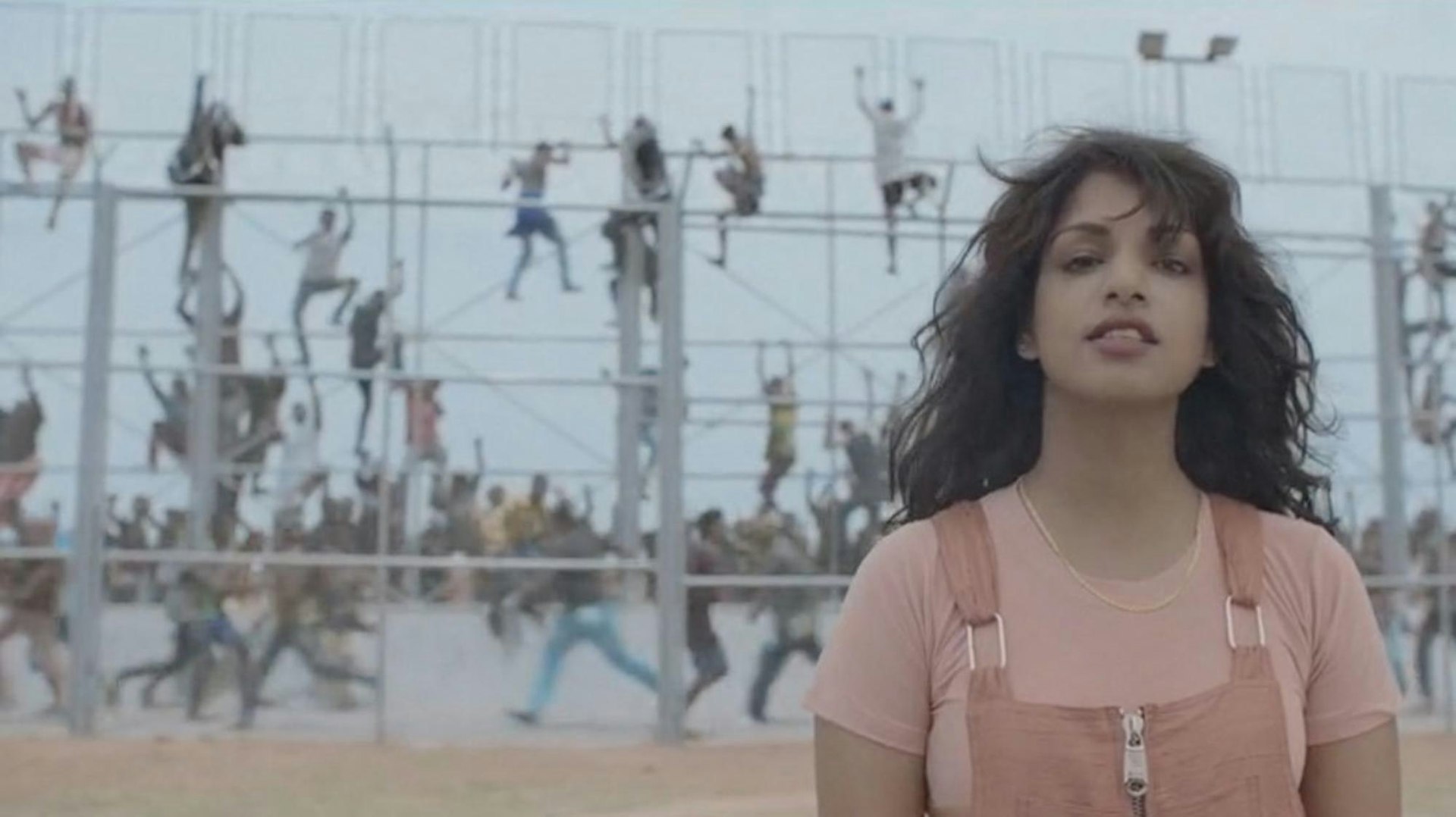- Text by Shelley Jones
In 2009 documentary filmmaker Sean McAllister, originally from Hull in the UK, travelled to Syria to document the vibrant country nicknamed the ‘hidden jewel’ of the Middle East. He’d been making films in the region for 15 years, covering conflict in places like Iraq and Palestine, but wanted a different kind of experience in a peaceful country.
Damascus back then was a fun, cosmopolitan city and Sean met lots of great people including a romantic character called Amer. Amer was a dissident who’d met his wife through prison walls. They’d had three children together but now his wife was a political prisoner of Assad’s brutal regime. Sean began to sense the struggle beneath the surface but, imagining any change in the stable country was impossible, he left after eight months and travelled to Yemen to document the uprising there.
While Sean was in Yemen, of course, things in Syria changed dramatically. After he heard that protests had broken out and Amer, and his son Kaka, had been arrested, having been some of the first people to go to the streets of Damascus, he dropped his Yemen footage off in the UK and headed straight back to Syria. That was the beginning of a five-year journey that would place Sean right in the middle of the biggest humanitarian crisis of modern times. And he captured the whole thing on camera.
The story of Amer, his wife Raghda and their three children is the story of millions of contemporary Syrians: terror, conflict, loss and exile. In his documentary A Syrian Love Story, Sean exhibits a devastating and rare insight into the trauma of war on the people who must live through it. The family’s trust and familiarity with Sean allows incredibly difficult moments of pain, anger and despair to unfold on camera. The entire political situation, humanised, in 76 minutes of heart-wrenching footage.
We caught up with Sean to find out more.
What first piqued your interest in Syria?
I’ve made films for twenty years in the Arab world, in Sudan and Iraq and Palestine and other places. I’d always gone to places where there was war and I was interested in Syria because it seemed like this hidden jewel in the Middle East, especially Damascus. I suppose I wanted to explore a functioning dictatorship and this seemingly secular society. Assad portrayed himself as a dictator that allowed a number of freedoms for the dictatorship to function – as long as you didn’t threaten him in anyway, directly.
What was Syria like when you first visited?
It was amazing. Damascus was incredible and Aleppo was incredible. I travelled all around and I will say that there was a lot of hardship for ordinary Syrians outside of the main cities. It was easy to be a tourist and not see that but when I met Amer I started learning about the struggle. You could be deluded by this illusion of freedom I suppose, in the big cities. But it’s a shame that absolutely everything was sacrificed because it did work in a way. It worked, but the prisons were full of political prisoners. That was the pay-off I suppose.
Pretty early into your time with the family you were arrested yourself. What was it like in prison under Assad?
It was traumatic to hear and see the systematic torture of Syrians. But I was not personally touched. Now looking at what’s happened it’s easy to think maybe it was better to have a brutal dictator instead of a destroyed country. But I saw firsthand what was really going on: beatings, electrocutions, horrific torture 24 hours a day, in cramped, windowless cells that weren’t even big enough to sit down in. People were dying around each other and they’d leave them for a few days before they dragged the bodies out. Imagine what it’s like to live under a regime where you’re constantly in fear of the knock on the door. We don’t know what that’s like. And it’s important to remember that when people say, ‘Syria was better under Assad.’ It’s an easy thing to say from this position over here.
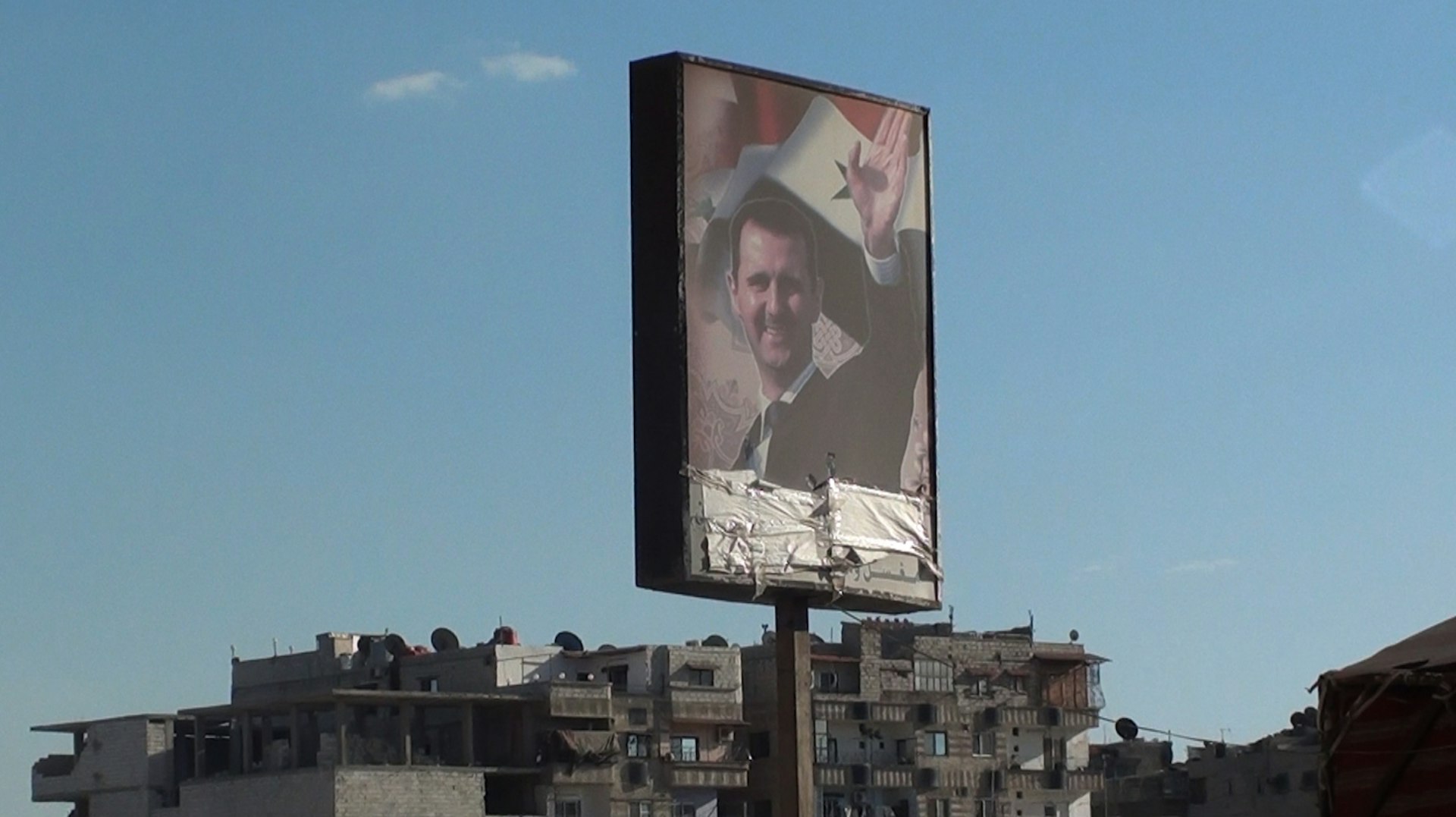
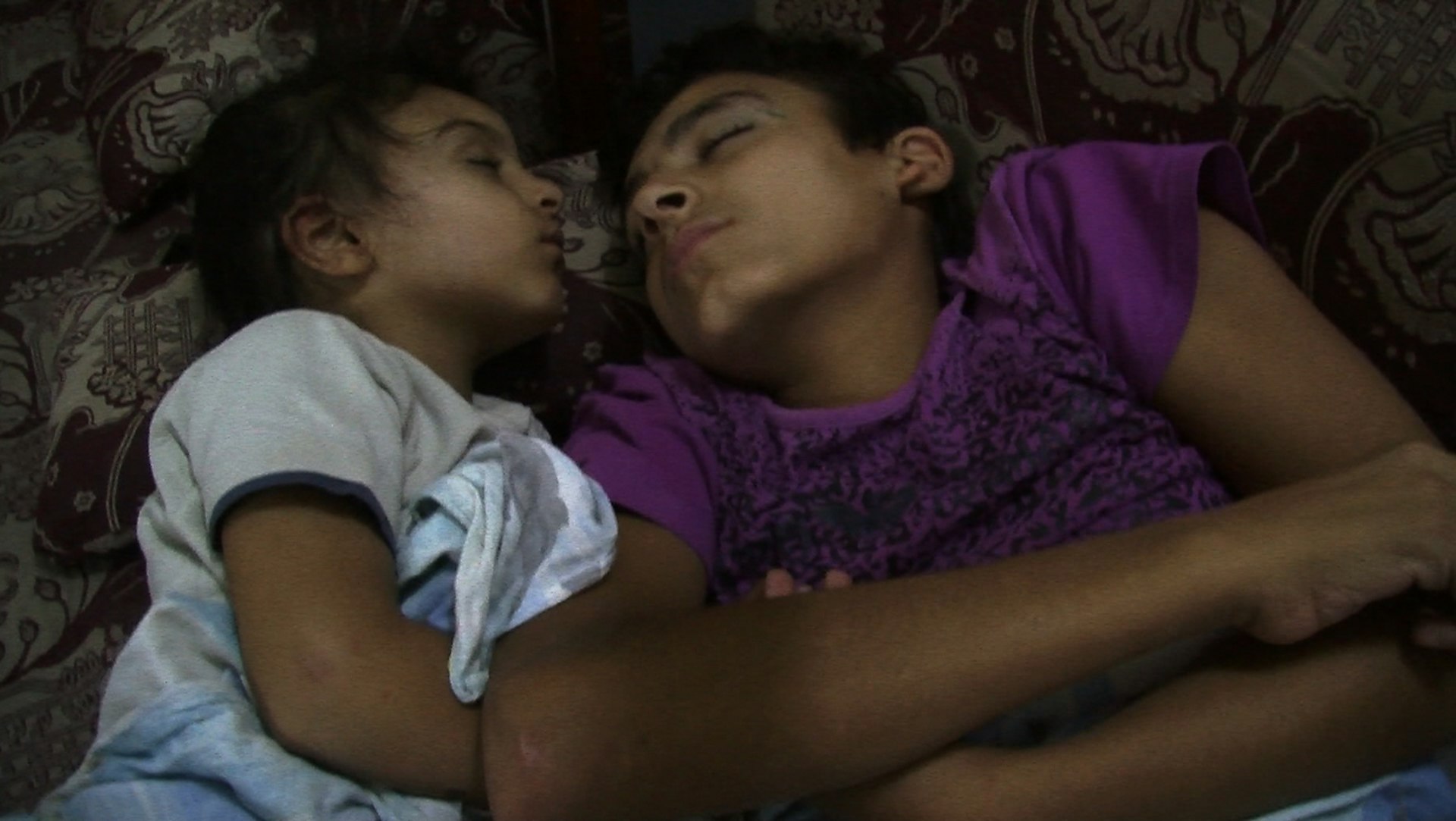
But it’s a dilemma because I enjoyed Syria for a year under Assad and I saw this wonderful restaurant-culture country with discos and dancing and bars and beers. All of the ingredients of the West were all permissible and open. And women could be walking with low-cut tops and miniskirts next to people in hijabs. A brutal leader can keep a lid on things so all minorities can exist. But the truth was a 9% minority, the Alawites, were running the show, and they’re essentially a Ba’athist mafia who have all the economy and industry and money in the country. Having said that I would also say, having been in Saddam’s Iraq, Assad did also have support. When the revolution was at its highest there was a saying over there, ‘40% were against him, 40% were with him, and the rest were confused.’ A push for freedom is a gamble. As we’ve seen with all the countries involved in the Arab Spring. Democracy might take 100 years or longer.
The country has been totally destroyed. Do you think supporting Assad to take out ISIS is a solution? What’s your hope for the future of Syria?
I don’t feel comfortable watching the news and seeing the stupidity of Hollande, certainly, siding with Putin and Assad against ISIS because of one attack. I think the fundamental problem in the country is still Assad. He’s barrel bombing and killing more civilians than ISIS. I don’t know. I think I hope that the West will find a way to provide safety zones for the Syrians, from the barrel bombing of Assad. I think we should do something with ISIS as well. But we need to think about protecting the people. I think they should still look at supporting the Free Syrian Army as an alternative to Assad. That still needs to be on the agenda. I think the country will be carved up now into different states, which it already is essentially. Assad has lost about two thirds of it.
There’s a moment in the film when Amer says that no one in Europe cares about Syria, but the war will come to them. That feels very prophetic now. How do you think Europe’s attitude towards Syria has changed?
I’m glad that was identifiable. I was worried that statement was buried. In those early days Amer was saying, ‘If you don’t help us, if you don’t come and save Syria, from this brutality, the problem’s going to come to you.’ And with the refugee crisis and jihadism it has come in two ways. Unfortunately right-wing Europeans are going to leap on that and shut down their doors like, ‘All of these refugees are terrorists.’ That’s why a film like this is hopefully useful in hopefully humanising the refugees rather than demonising them.
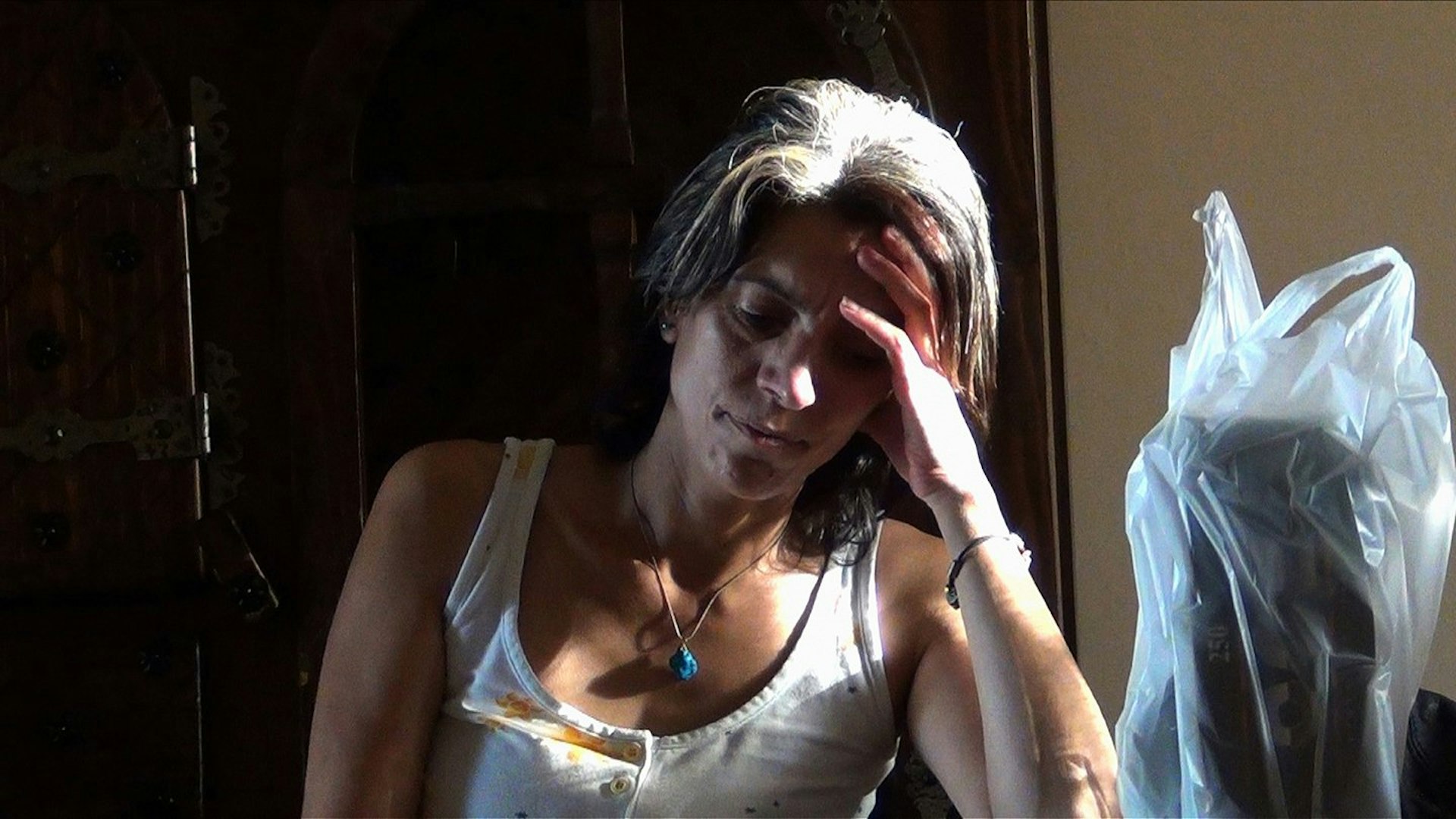
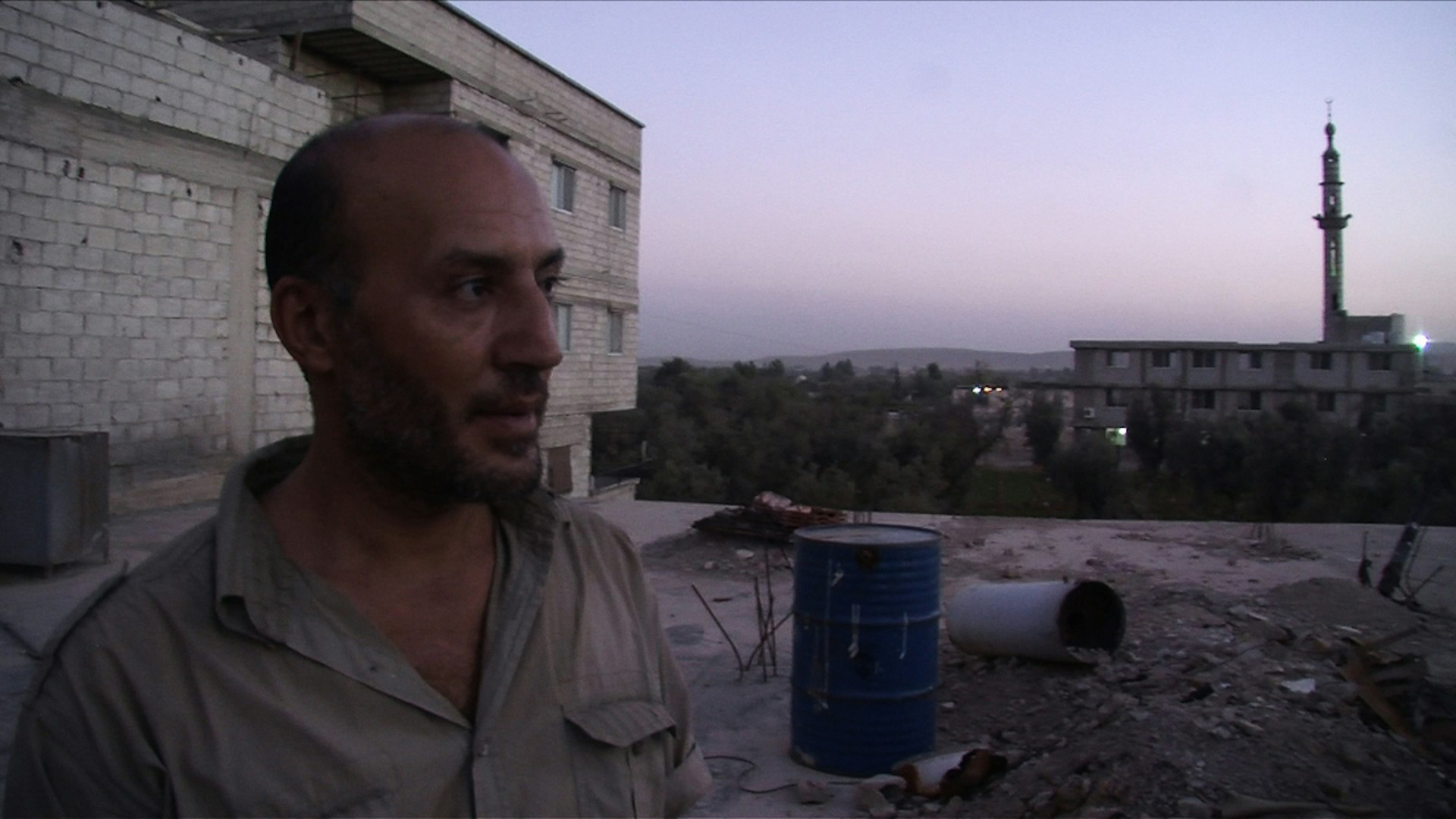
There is a lot of xenophobia towards refugees in Europe. Do you hope people will see the traumatic experiences Amer and Raghda have gone through and change their perception?
Of course yeah… When we first cut the film nobody was interested in Syria or exile. Then we did a couple of festivals and it started to get people talking and then that little boy’s body was washed up on the seashore and I think that’s when there was a wave of interest. All these stories about ‘floods’ of people coming across Europe, are in the news but it’s really rare that you get any backstory to any of those faces. You just see darkened figures coming from ‘God knows where’. But in this film you have one family observed over five years, there’s all the backstory, the political upheaval in Syria, and the kids growing up. On camera. I think it humanises and characterises the news. And I think that’s hugely important.
From your time with Raghda and Amer what do you think we can do to help refugees in Europe?
I don’t know really because everyone’s individual, everyone’s different. Not everybody is as complicated as Raghda, who had such a traumatic time in prison. But I’m sure a lot of people will be traumatised, even if it’s just by the journey. Amer and Raghda didn’t have the trauma of a refugee camp or a dangerous journey across the water. A film like this can hopefully make people aware that refugees might be hiding all these kinds of traumas within them. Raghda could have got psychiatric help. France really took them in and integrated them, and they were probably lucky because they were the first Syrian family there. But she was so scared of going to to someone, being told she was mad, and being locked up again. She didn’t dare go anywhere. Also her trauma was that she was a revolutionary that felt guilty with any luxury. However good things got in the south of France it made her feel worse.
It’s an incredibly immersive project. What responsibility did you feel to Raghda and Amer after you stopped filming?
After I was arrested I felt responsible to try and help them… They had to flee Syria after my arrest and I didn’t really have the resources to get them to the West but I did what I could. Then when they got to France things started to fall apart and they both started calling on me to be the judge and juror for what was right and wrong with their relationship. They got comfortable with me and I became involved in their divorce I suppose… The story felt very cinematic for me, because they’ve got such an ease in front of the camera, because of the familiarity we had over such a long time. He was like John Cassavetes for me, in my favourite John Cassavetes movie, and she was Gina Rowlands. Two people fighting and screaming and trying to make sense of their lives, set against this great political backdrop… I get immersed in all of the films I do so it’s a little bit like having a marriage or an affair. I’m sort of facing up to separation from them now but of course I don’t want to let go.
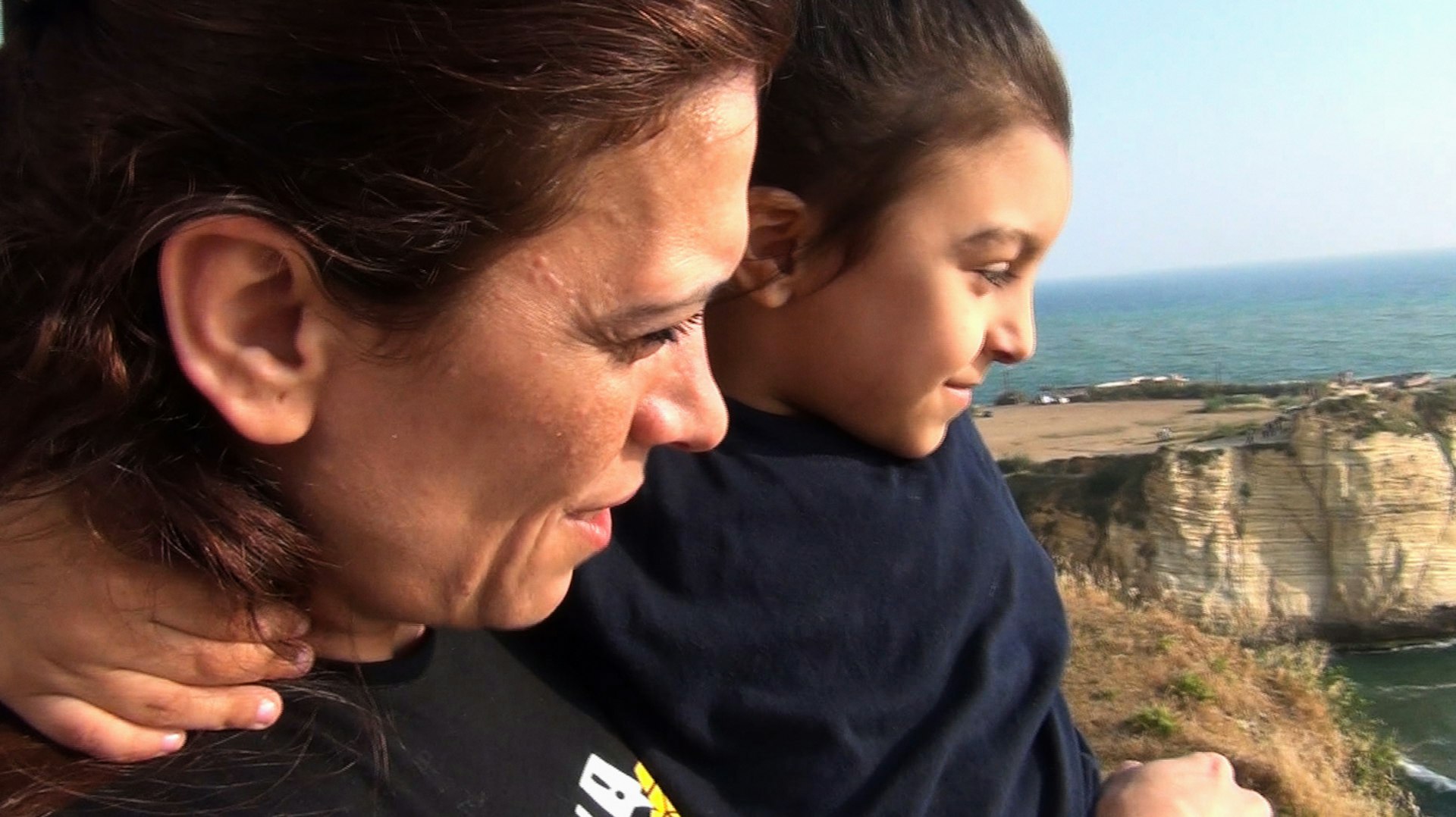
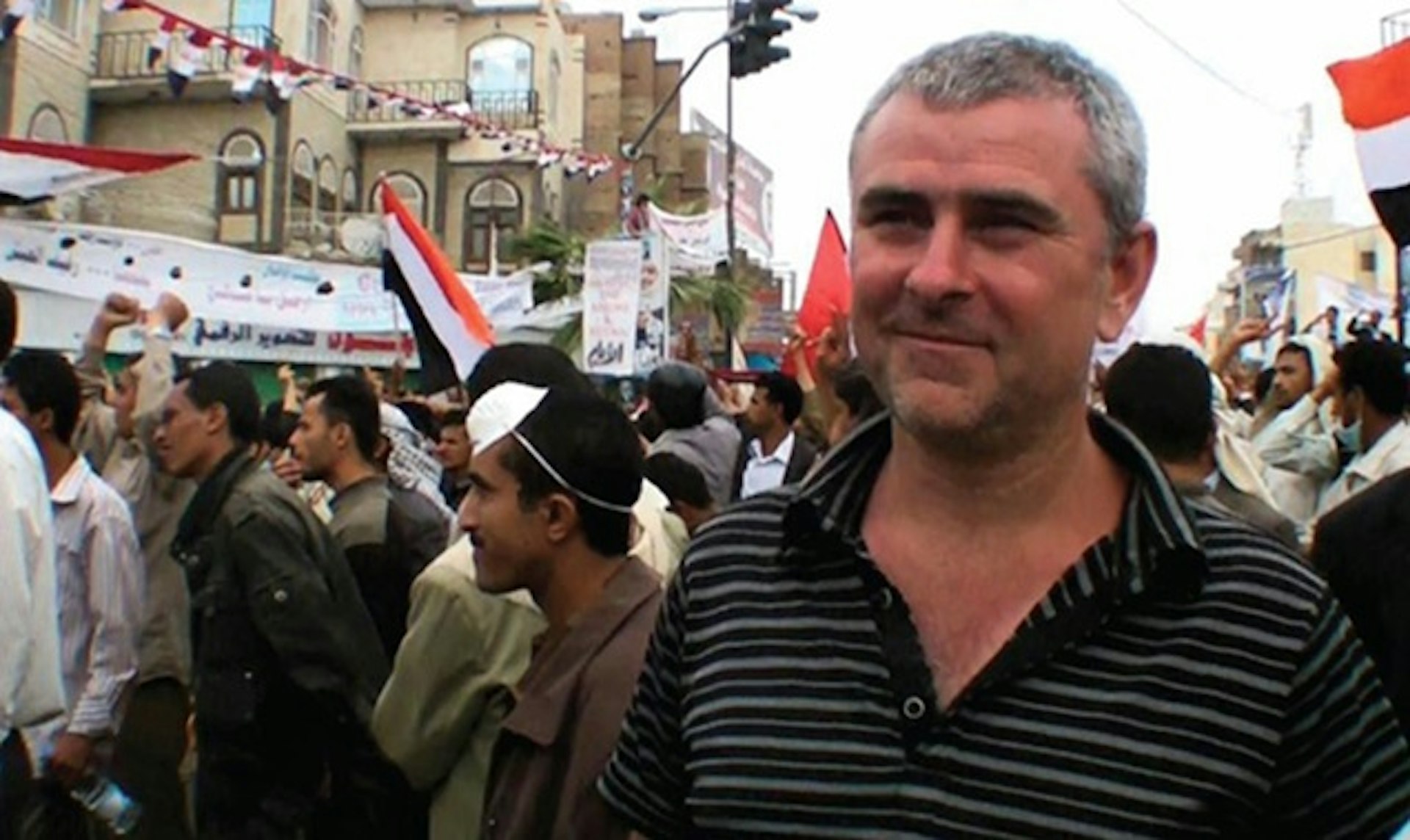
Are they proud of the film?
They were definitely unsure at times. They thought I was a lunatic filming all these crazy things. But you have to gain the trust of people and that takes time, and that’s even more difficult when you don’t even have a commission. But I pushed and pushed and they understand now. And when they see the emotional response of the audience in screenings, they are really proud of what we’ve done.
Do you hope that’s what people take away from the film? A sense of empathy with the Syrian people?
Exactly. My hope is that when people watch this film they don’t look at the news in the same empty way again. Shocking images like the little boy on the beach are good to shock people into action but you don’t feel like you know that boy. But when people see those images now maybe they’ll think of little Bob in the film and the family that they’ve had the privilege of living with for five years in the documentary. Hopefully they’ll see them as human beings instead of just empty figures, products of the news.
You can watch A Syrian Love Story in full on the BFI Player or check the official website for a screening near you.
